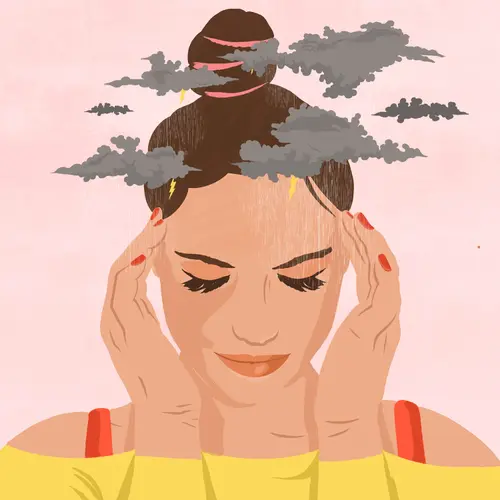After a night on the town, it's easy to blame a headache on too much alcohol. But if you're prone to migraine headaches, drinking even a small amount of alcohol can bring on an attack.
What's the Link?
Many things can trigger a migraine, from stress at work to changes in the weather to foods like aged cheese. And for about one-third of people who have migraines, alcohol is also a trigger.
Alcohol's exact role in triggering a migraine isn't fully known. Many things are probably at play. For instance, alcohol byproducts called congeners have been linked to headaches. Dark-colored alcohols like red wine, brandy, and whiskey may contain more of them. <!--td {border: 1px solid #ccc;}br {mso-data-placement:same-cell;}--> Learn more about the effects of alcohol on the brain.
Alcohol not only contains a chemical called histamine, but it also spurs your immune system to make more. This boosts inflammation throughout your body.
A chemical called ethanol is alcohol's main ingredient. Once it gets into your system, it is converted into a chemical that triggers migraine. Ethanol is also a natural diuretic. That means it makes you pee more than normal. All of these things can set you up for a migraine.
You might have heard that red wine is most likely to cause problems. But other drinks like sparkling wine, beer, and hard liquor may be just as likely, if not more, to cause problems.
What Are the Symptoms?
Alcohol can cause two different types of migraine headaches.
You could get a headache within 30 minutes to 3 hours of drinking. You don't have to chug a large amount for this to happen. Some people only sip a glass or two of wine before their head starts to throb.
Or you might be fine until after your blood alcohol level returns to normal. This is called a delayed alcohol-induced headache (DAIH). It may not show up until the morning after you drink. This type of headache can happen to anyone, but people with migraines are more likely to get one. It can happen even if you drink less than people who don't get migraine headaches.
What's the Treatment?
Drinking a small amount of alcohol may be good for you. It may lower your odds of heart disease and strokes.
But if you're prone to migraine headaches, you'll need to be careful about how much you drink. A 5-ounce glass of wine (or 12 ounces of beer or a 1.5-fluid-ounce shot) may be OK every now and then, so long as it doesn't bring on a headache. If it does, you'll need to drink less or stay away from all alcohol.
If you aren't sure that alcohol is to blame for your headaches, try keeping a diary. Each time you drink, write down the type of alcohol you have, the amount, and if and when you had a migraine. Include how you felt the prior 48 hours as well as any stress or anxiety you were under at the time. Over time, you should be able to see a pattern. A migraine each time you have a night out should be a good reason to abstain.
What Else Can I Do?
You can also try to:
Have alcohol with a meal. This may lower the chance of bringing on a migraine.
Don't drink when you're stressed. It's linked to a higher number of migraine headaches.
Skip home hangover remedies. There's no proof that drinking raw eggs or downing hot sauce will get rid of your morning-after migraine faster. Downing more alcohol (the “hair of the dog” theory) won't help either.
Try triptans. Ask your doctor if this medicine might help. It can't prevent a migraine, but it can help stop one after it starts. Triptans work best when you take them at the early signs of a migraine. Still, they can cause serious health risks for many people.

